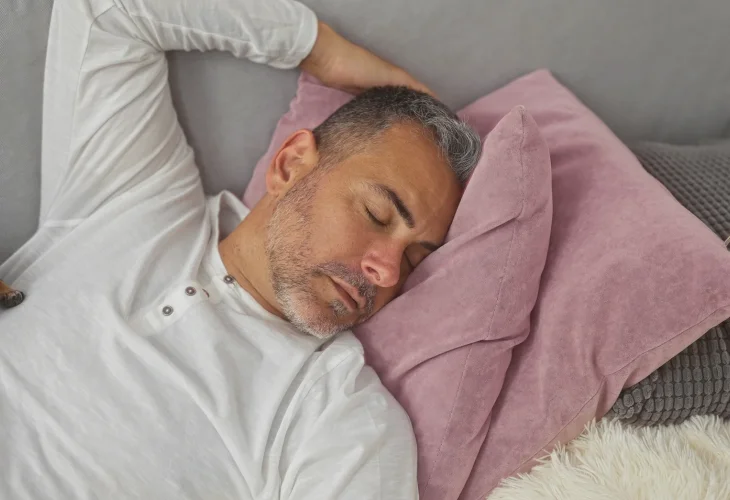Health and Nutrition
Poor Sleep in Your 40s-50s Can Accelerate Brain Aging, Study Finds
Sleep deprivation in midlife increases the risk of cognitive decline and Alzheimer’s. Learn how improving sleep quality can protect your brain health.
 (Photo: shutterstock)
(Photo: shutterstock)A groundbreaking study conducted by the University of California, San Francisco (UCSF) highlights a troubling link between sleep deprivation in people aged 40-50 and accelerated brain aging. While previous research has mainly focused on seniors, this study, published in the journal Neurology, examined a group of 589 participants with an average age of 40. The researchers found that insufficient or poor-quality sleep over five years had a direct impact on brain development, leading to premature aging, cognitive decline, and an increased risk of Alzheimer’s disease.
The study didn’t only measure sleep duration but also analyzed sleep quality, identifying six key characteristics of poor sleep: short sleep duration, difficulty falling asleep, waking up too early, daytime fatigue, and overall low sleep quality. The researchers emphasized that the connection between poor sleep and brain aging is not solely dependent on how many hours you sleep but largely on the quality of that sleep.
Dr. Amit Green, a psychologist and sleep disorder specialist from Assuta’s Sleep Center, explains that “sleep is the third most essential human need, right after air and water.” According to him, lack of sleep disrupts many critical functions, including cognitive abilities, memory, concentration, mood, and even hunger and satiety cues. Prof. Yaron Dagan, head of Assuta’s Sleep Center, adds that sleep is essential not only for daily functioning but also for the body’s and brain’s rejuvenation processes, such as growth hormone secretion and processing daily memories.
The study also sheds light on gender differences in how the brain responds to poor sleep. It found that women are more prone to insomnia due to stress and anxiety, while men are more affected by sleep-disordered breathing. However, both groups experience similar consequences of sleep deprivation, including memory impairment, reduced concentration, and overall decline in cognitive functions.
To maintain healthy sleep quality, experts recommend establishing a consistent routine that allows for 6-8 hours of sleep per night, avoiding screen time before bed, reducing caffeine intake in the evening, and steering clear of alcohol as a sedative. Additionally, it’s crucial to recognize that sleep is not a luxury, but a fundamental necessity that affects every aspect of physical and mental health.
The study underscores that even in cases of chronic sleep deprivation, it is possible to reverse some of the damage through proper treatment and lifestyle adjustments.

